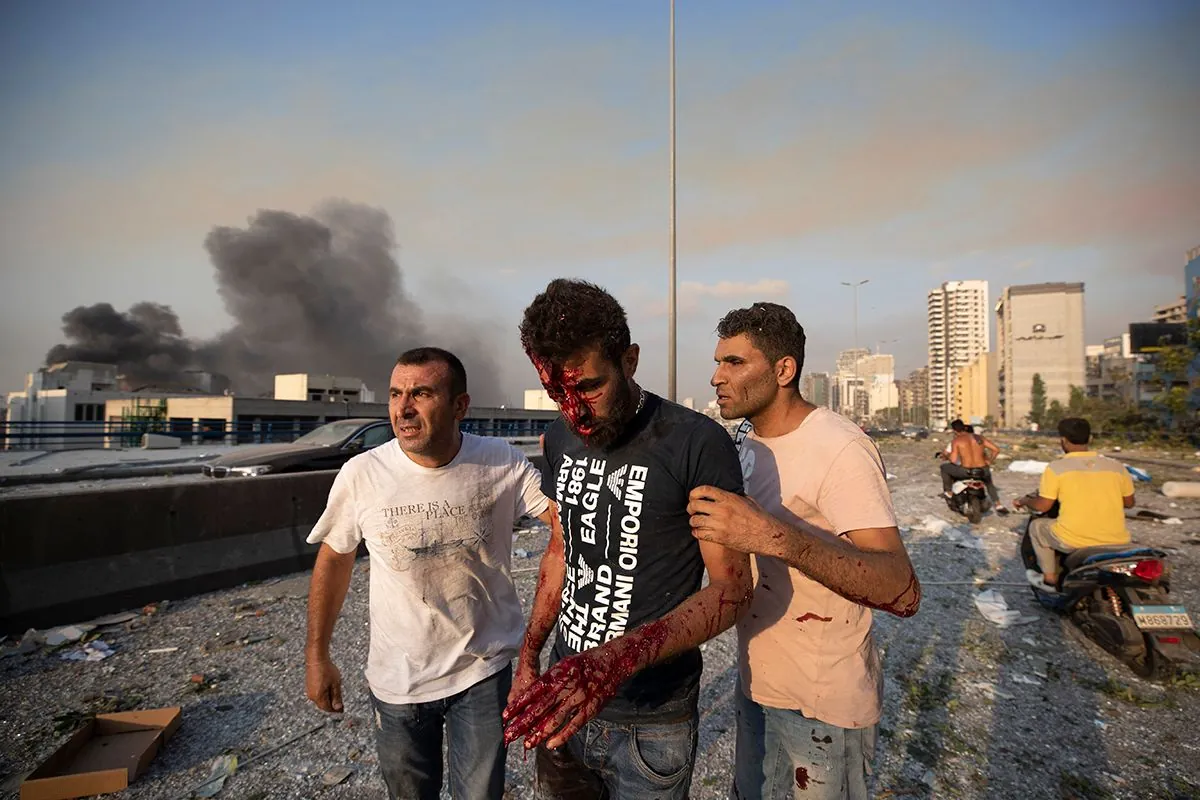Hezbollah's Pager Gambit Backfires in Deadly Explosions
Thousands of Hezbollah pagers exploded simultaneously in Lebanon, killing at least nine and injuring over 2,700. The incident, blamed on Israel, marks a significant escalation in the ongoing conflict.

In a shocking turn of events, Hezbollah's attempt to enhance communication security backfired catastrophically on September 17, 2024. The Lebanese militant group, founded in 1985, had recently switched to using pagers, believing them to be more secure than mobile phones. This decision, made in response to a series of assassinations of top operatives, proved to be a fatal miscalculation.
At 3:45 PM local time, thousands of pagers simultaneously detonated across Lebanon, resulting in at least nine fatalities and over 2,700 injuries. Firass Abiad, Lebanon's health minister, reported that 200 individuals were in critical condition. The casualties included both Hezbollah fighters and civilians, with unconfirmed reports suggesting that even Iran's ambassador to Lebanon was among the wounded.

The incident has been described as the "biggest security breach" Hezbollah has experienced in a year of conflict with Israel. Ziad Makary, Lebanon's information minister, condemned the detonations as "Israeli aggression," although Israeli officials have declined to comment on the matter.
Experts suggest that the attack likely involved a supply chain compromise rather than a remote cyber attack. Alan Woodward, a cybersecurity expert, and Hamish de Bretton Gordon, a retired British Army chemical weapons expert, both indicated that the explosions were likely caused by embedded explosives rather than battery malfunctions.
This incident occurs against the backdrop of escalating tensions between Israel and Hezbollah. The conflict, which intensified following Hamas's attacks on Israel on October 7, 2023, has seen both sides engage in low-level warfare for nearly a year. Hezbollah, which has an estimated 25,000 active fighters and receives substantial support from Iran, has been launching strikes from Lebanon in response to Israel's actions in Gaza.
The pager explosions came just a day after Israel's defense minister, Yoav Gallant, stated that military action might be necessary to ensure the return of Israeli civilians to the northern border areas. This declaration, coupled with the pager attack, has raised concerns about a potential full-scale war between Israel and Hezbollah.
"If you're looking for an Israeli agent, look at the phone in your hand."
As the situation unfolds, the international community watches closely. The incident not only demonstrates the ongoing security challenges in the region but also highlights the evolving nature of warfare and espionage in the digital age. With Hezbollah's sophisticated media apparatus and cyber warfare capabilities, the group's response to this attack could have far-reaching implications for regional stability.


































